
1971: Genocide-Torture Archive & Museum: A Chronicle of Bangladesh's Liberation War
Preserving the memory of the 1971 genocide in Bangladesh through artifacts, photos, and survivor stories. A deeply emotional and educational experience.
The 1971: Genocide-Torture Archive & Museum in Khulna stands as Bangladesh's first genocide museum, dedicated to preserving the memory of the atrocities committed during the 1971 Liberation War. Through artifacts, photographs, and survivor testimonies, the museum offers a poignant and educational experience, highlighting the resilience and sacrifices of the Bangladeshi people.
A brief summary to 1971 : Genocide-Torture Archive & Museum
- 26 S Central Rd, Khulna, Khulna City, 9100, BD
- +8801781-197171
- Tuesday 10 am-6 pm
- Wednesday 10 am-6 pm
- Thursday 10 am-6 pm
- Friday 10 am-7 pm
- Saturday 10 am-6 pm
- Sunday 10 am-6 pm
Local tips
- Allow ample time to explore the museum's extensive collection; plan for at least 2-3 hours to fully absorb the exhibits.
- Consider visiting with a local guide or translator to gain deeper insights into the historical context and personal stories behind the artifacts.
- Check the museum's website or call ahead for information on special events, exhibitions, or guided tours.
Getting There
-
Walking
The 1971: Genocide-Torture Archive & Museum is located at 26 S Central Rd, Khulna. From most points in Khulna City, the museum is accessible by walking. From Khulna New Market it is approximately a 15-20 minute walk. Head east on স্যার ইকবাল রোড/Sir Iqbal Road toward KDA Ave, turn left onto KDA Ave, turn right onto খান জাহান আলী রোড/Khan Jahan Ali Rd, turn left onto সাউথ সেন্ট্রাল রোড/S Central Rd, and the destination will be on the right. Walking is a good way to reach the museum and experience the city.
-
Public Transport
While Khulna once had a robust public bus system, it has significantly declined in recent years. Currently, the most common forms of public transport are cycle rickshaws and auto-rickshaws. To reach the museum, you can hire a rickshaw or auto-rickshaw from major points in the city, such as the Sonadanga Bus Terminal or the Khulna Railway Station. Negotiate the fare beforehand. A typical short trip within the city center should cost between 30-50 BDT.
-
Taxi
Taxis and ride-sharing services like Uber and Pathao are available in Khulna. You can easily book a ride through their respective apps or hail a taxi on the street. From locations such as the Khulna Railway Station or the Sonadanga Bus Terminal, a taxi ride to the museum should take approximately 10-15 minutes, depending on traffic. The estimated cost for a 5km ride in Khulna is around 240-285 BDT.
Discover more about 1971 : Genocide-Torture Archive & Museum
Iconic landmarks you can’t miss
রাজবাড়ি
0.5 km
Explore the echoes of Khulna's past at রাজবাড়ি, a symbolic landmark representing the region's rich cultural heritage and historical significance, inviting you to discover the stories etched in time.
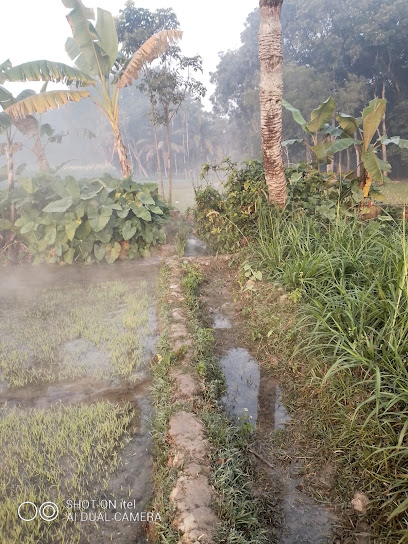
PTI More
0.6 km
Experience the vibrant heart of Khulna at PTI More, a bustling town square where local culture thrives, offering authentic street food, unique crafts, and a warm community atmosphere.
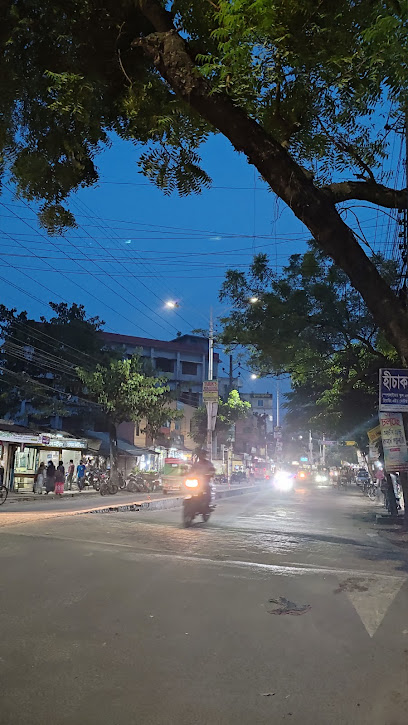
Hadis Park Pond
0.8 km
Explore the tranquility of Hadis Park Pond, a historical landmark in Khulna, offering serene views and a glimpse into the local culture.
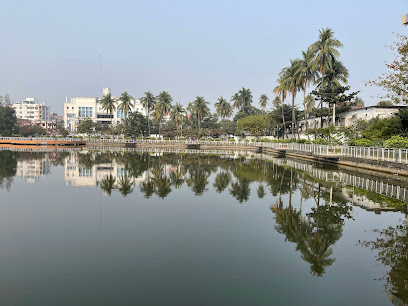
Picture Palace More
1.0 km
Experience the vibrant heart of Khulna at Picture Palace More, a bustling town square where culture, commerce, and community converge.
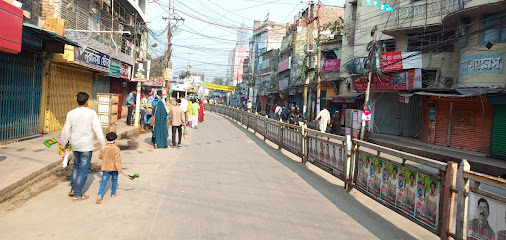
Arya Dharmasabha Kali Temple
1.0 km
Discover the spiritual heart of Khulna at the Arya Dharmasabha Kali Temple, a vibrant center of Hindu tradition and architectural beauty.
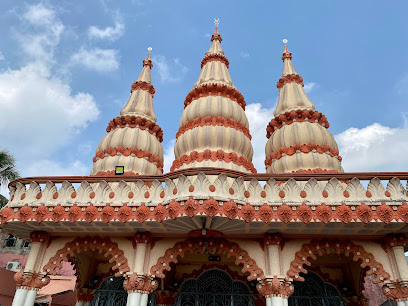
7 Rasta More
1.1 km
Experience the vibrant heart of Khulna at 7 Rasta More, a bustling town square where culture, commerce, and daily life converge.
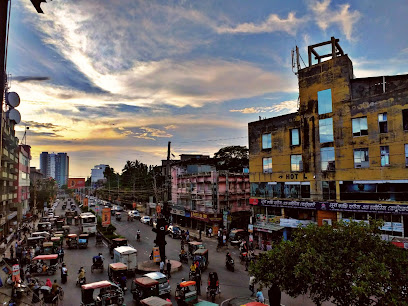
Ferryghat Genocide, Khulna
1.4 km
Explore the compelling history of Ferryghat Genocide in Khulna, a significant landmark commemorating the struggle for independence in Bangladesh.
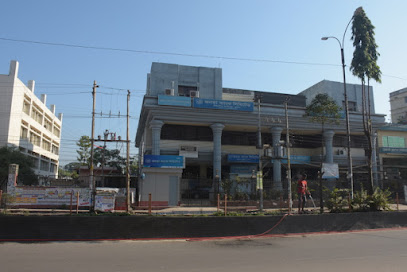
shat Gambuz monument khulna
1.4 km
Explore the Shat Gambuz Monument, a key historical landmark in Khulna, showcasing the rich heritage and architectural beauty of Bangladesh.
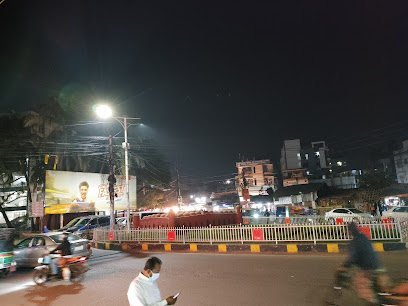
ময়লাপোতা মোড়
1.5 km
Experience the vibrant heart of Khulna at Moylapota More, a bustling town square offering a taste of local culture and community life.
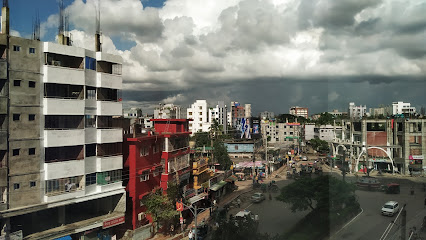
Power House More
1.7 km
Experience the vibrant heart of Khulna at Power House More, a bustling town square filled with culture, street food, and unique shopping.
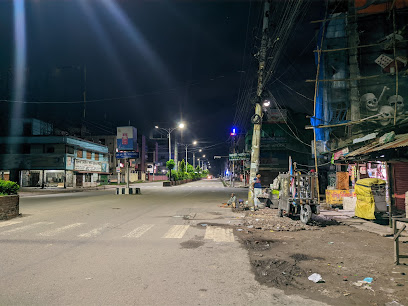
Nirala More
2.0 km
Experience the vibrant heart of Khulna at Nirala More, a bustling town square offering a taste of local culture, cuisine, and community spirit.
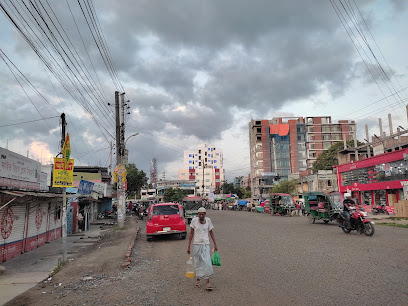
Baitul Mukaram Jame Mosque
2.8 km
Discover the serene beauty and cultural significance of Baitul Mukarram Jame Mosque, a spiritual landmark in the heart of Khulna, Bangladesh.
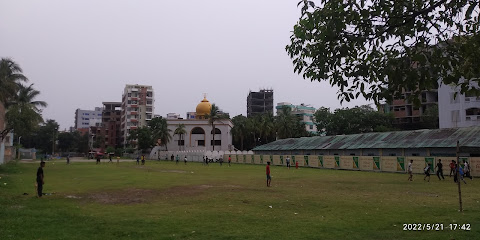
Jatra Flagship Khulna City Centre
2.8 km
Experience the perfect blend of comfort and local charm at Jatra Flagship Khulna City Centre, your ideal home base in Khulna.
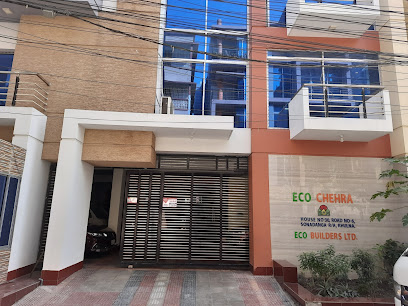
জোড়াগেট
3.0 km
Discover the vibrant culture of Khulna at the Town Square, where local life, delicious cuisine, and rich heritage come together in a lively atmosphere.
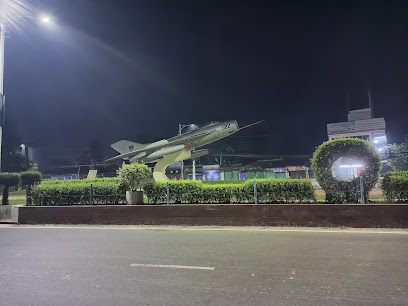
Bangladesh Biman Monument
3.1 km
Explore the Bangladesh Biman Monument in Khulna – a solemn tribute to national heroes and a serene spot for reflection and photography.
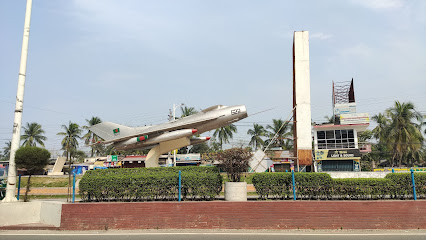
Unmissable attractions to see
Park Fountain
0.9 km
Find serenity at Khulna's Park Fountain, a modern oasis offering a refreshing escape and a picturesque setting for relaxation in the city.
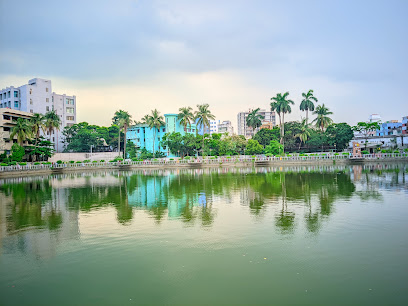
Central Shaheed Minar, Khulna
0.9 km
A solemn memorial in Khulna honoring the heroes of the Bengali Language Movement and the spirit of Bengali nationalism.
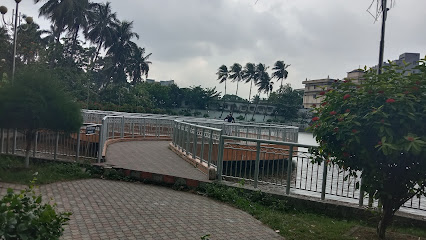
Shahid Hadis Park
0.9 km
Discover Shahid Hadis Park in Khulna: A historic park offering a peaceful retreat with lush greenery, a serene lake, and cultural significance.
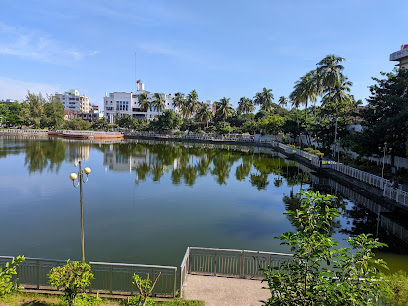
Golok Moni Park
1.0 km
Escape to Khulna's green heart: a tranquil urban oasis with lush greenery, scenic walkways, and a serene atmosphere for relaxation and recreation.
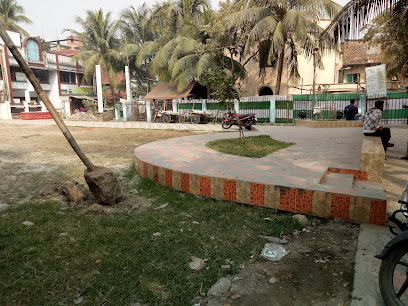
Jatishongho Shishu Park
1.1 km
A cherished green retreat in Khulna, offering recreation, play areas, and community events for families and children of all ages. Open daily.
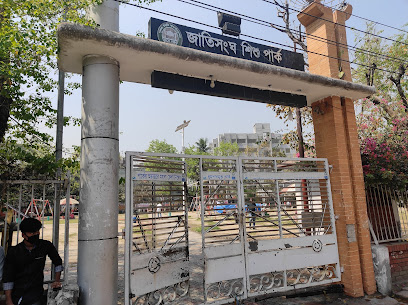
Rupsha Ghat
1.4 km
Experience the vibrant heart of Khulna at Rupsha Ghat, a bustling river port where commerce, culture, and community converge.
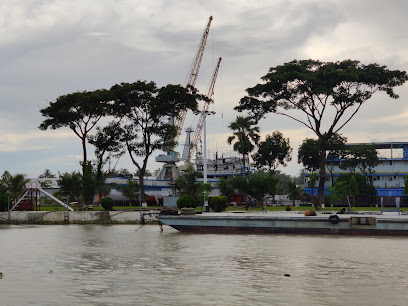
Rupsa Riverview
1.9 km
Experience tranquility on the Rupsa River in Khulna, Bangladesh, a scenic escape into nature and local culture.
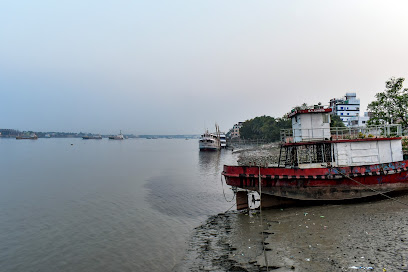
৭নং বিআইডব্লিউটিএ ঘাট
2.3 km
Experience Khulna's river life at 7 Number Ghat, a bustling transport hub on the Bhairab River, connecting communities and cultures.
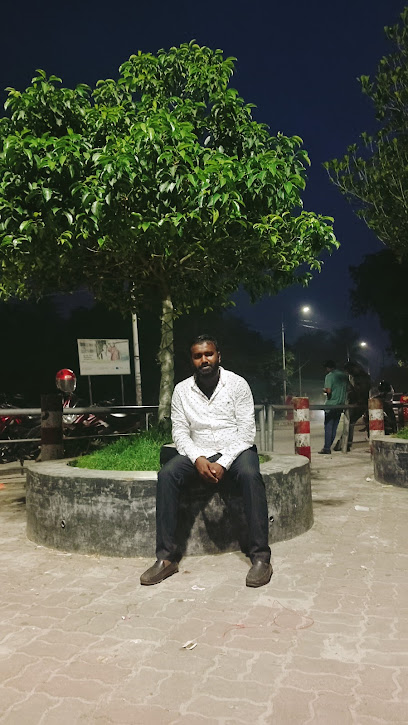
Divisional Museum, Khulna
2.4 km
Discover South Bengal's history at Khulna Divisional Museum: archaeological finds, artifacts & cultural events await!
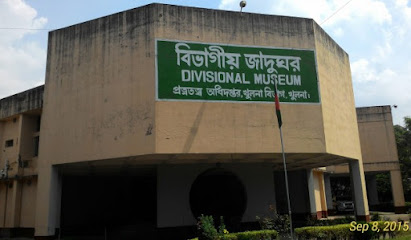
Solar Park
2.9 km
Discover Khulna's Solar Park: a serene escape showcasing sustainable energy, tranquil lakes, and lush greenery in the heart of the city.
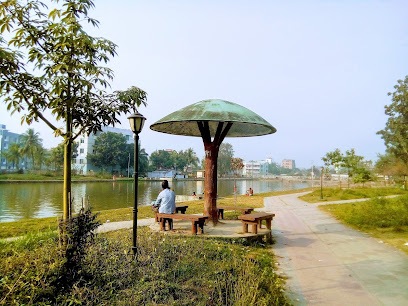
6 No Ghat, Walkway Park
3.0 km
Escape to tranquility at Khulna's 6 No Ghat Walkway Park: lush greenery, scenic river views, and a vibrant community atmosphere await.
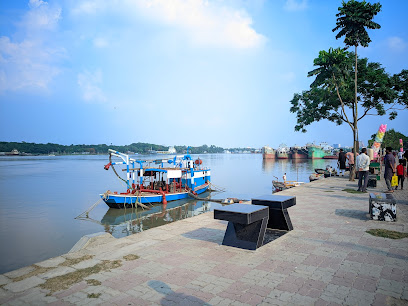
Joragate Rail line
3.5 km
Explore the historic Joragate Rail Line in Khulna, Bangladesh, where railway heritage meets breathtaking views and local culture.
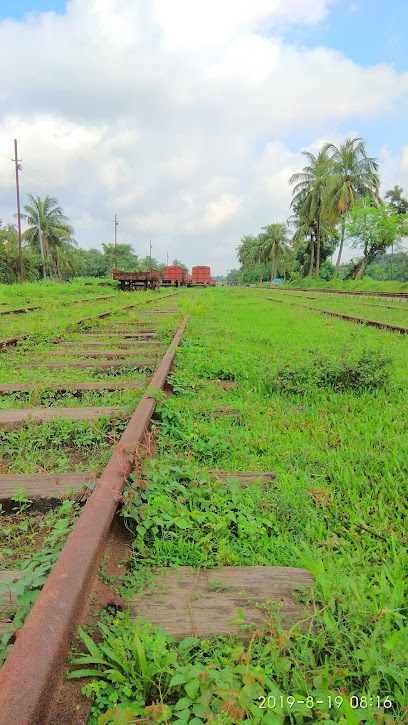
Katka Monument
3.7 km
A poignant memorial at Khulna University, honoring students lost in the Katka tragedy and symbolizing resilience and remembrance.
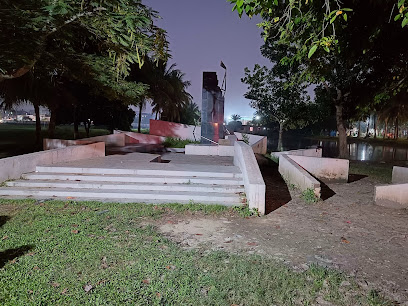
Khan Jahan Ali Bridge
3.9 km
Discover the iconic Khan Jahan Ali Bridge in Khulna: A vital link, architectural marvel, and vibrant social hub with stunning Rupsha River views.
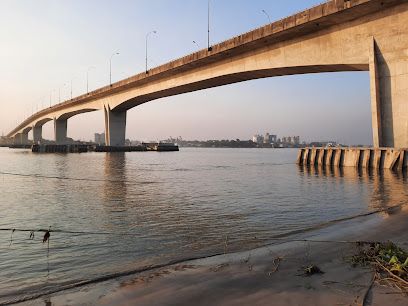
Masranga Lake
4.3 km
Escape to the serene beauty of Masranga Lake in Khulna, Bangladesh, a perfect retreat for nature lovers and those seeking tranquility.
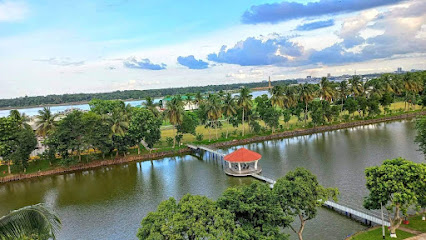
Essential places to dine
Saffron Restaurant, Khulna
0.2 km
Discover family-friendly dining at Saffron Restaurant in Khulna, where authentic Bangladeshi flavors meet welcoming hospitality.
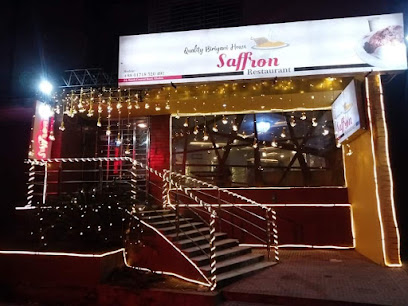
Nana Special Halim
0.4 km
Experience authentic Bengali cuisine at Nana Special Halim in Khulna—home to flavorful halim and traditional delights.
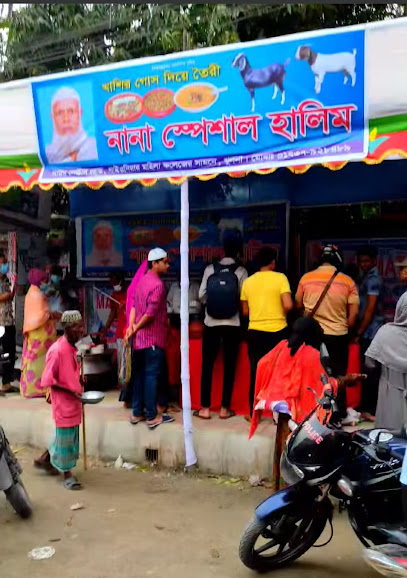
Suruchi Hotel & Restaurant
0.4 km
Discover the essence of Bangladeshi cuisine at Suruchi Hotel & Restaurant in Khulna – where every dish tells a story.
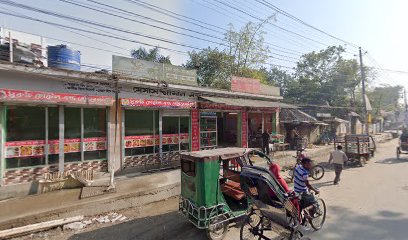
Wimpy's
0.5 km
Discover delightful flavors at Wimpy's in Khulna—where every meal is an unforgettable culinary adventure.

Chinese Palace
0.6 km
Experience authentic Bangladeshi cuisine at Chinese Palace in Khulna – where flavor meets tradition in a cozy setting.
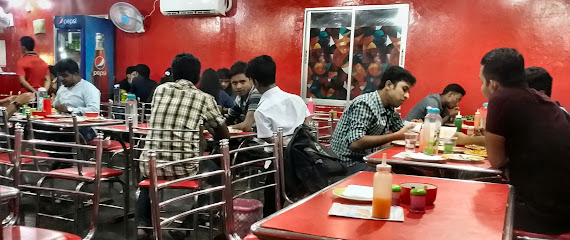
Canton Thai & Chinese Restaurant
0.6 km
Discover exquisite flavors at Canton Thai & Chinese Restaurant in Khulna – where authentic cuisine meets delightful ambiance.

Appayan Hotel & Resturant
0.9 km
Discover family-friendly dining at Appayan Hotel & Restaurant in Khulna - where authentic flavors meet warm hospitality.
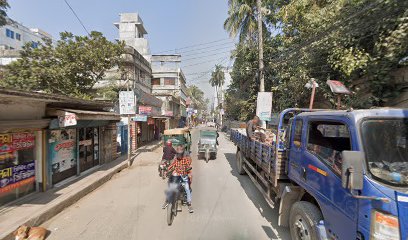
The Avenue Restaurant
0.9 km
Savor authentic Bangladeshi flavors at The Avenue Restaurant in Khulna - a must-visit culinary destination for food lovers.
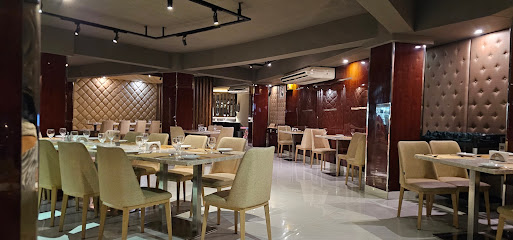
Mama Noura
1.1 km
Savor authentic Chinese flavors at Mama Noura in Khulna—where generous portions meet comfort and tradition.
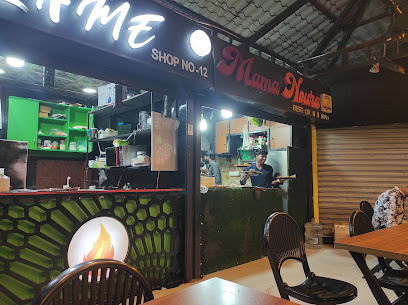
Chuknagar Hotel
1.1 km
Experience authentic Bangladeshi cuisine at Chuknagar Hotel in Khulna - where flavor meets tradition.

Hotel The Royal Sultan's Banquat & BBQ
1.2 km
Discover Khulna’s culinary treasure at Hotel The Royal Sultan's Banquet & BBQ, where authentic Bangladeshi flavors come alive in every dish.
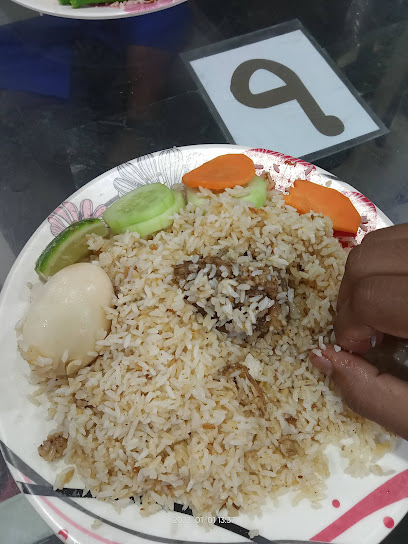
Prothom Shad Restaurant
1.2 km
Discover the essence of Bangladeshi cuisine at Prothom Shad Restaurant in Khulna, where every meal is a celebration of local flavors.
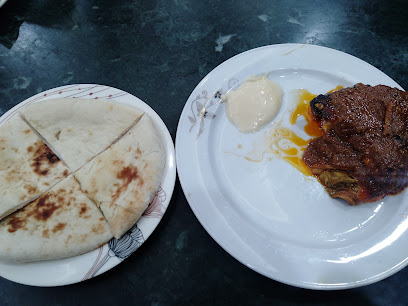
Sharif Hotel Restaurant and Caterers
1.3 km
Discover authentic Bengali cuisine at Sharif Hotel Restaurant in Khulna - where every dish is a celebration of culture.
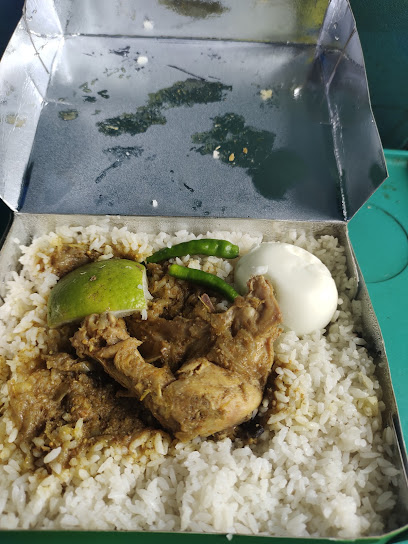
নিউ নূরানিয়া হোটেল
1.3 km
Savor the essence of Bangladesh at New Nuraniya Hotel - where every meal tells a story through authentic flavors.
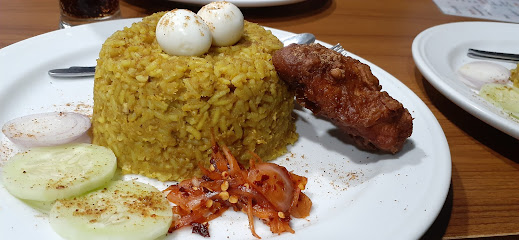
Nasta House
1.6 km
Experience authentic Bangladeshi breakfasts at Nasta House in Khulna - where flavor meets tradition.

Markets, malls and hidden boutiques
UK Variety Shopping
0.2 km
Explore Khulna's UK Variety Shopping for a delightful mix of baby items, cosmetics, and unique jewelry in a vibrant shopping atmosphere.
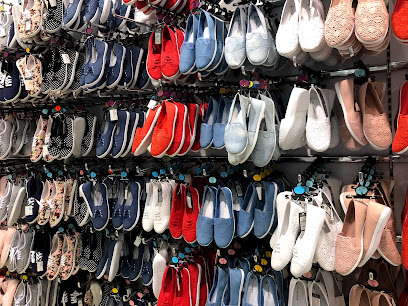
Bistro C
0.9 km
Discover the rich flavors of Khulna at Bistro C, where local and international cuisines come together in a warm, welcoming atmosphere.
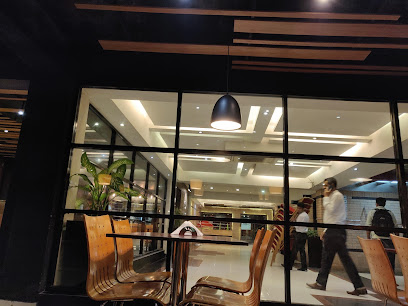
Rakib best fashion house khulna
1.0 km
Explore the vibrant fashion scene at Rakib Best Fashion House, Khulna, where unique styles meet local craftsmanship.
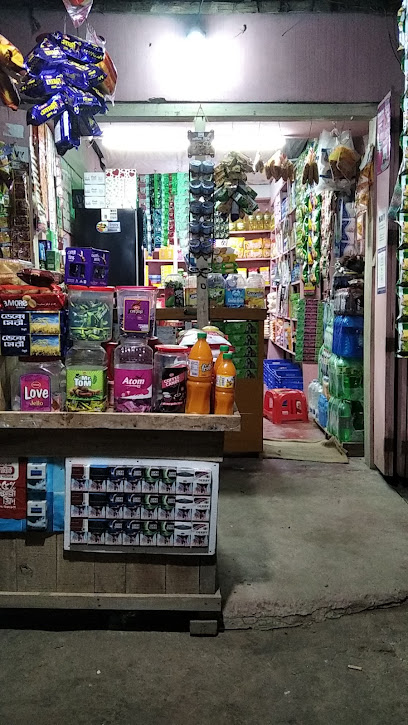
Top Ten Fabrics & Tailors
1.1 km
Explore Top Ten Fabrics & Tailors in Khulna for a unique selection of textiles and expert tailoring services that celebrate local craftsmanship.

unique selling point
1.1 km
Discover a treasure trove of beauty products in Khulna, from popular cosmetics to unique local finds for every beauty enthusiast.
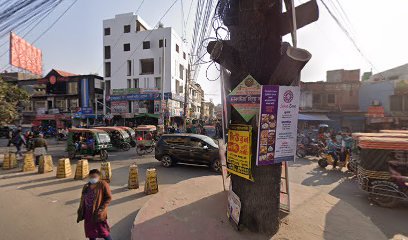
DARAZ STORE
1.1 km
Experience the best of local shopping and unique finds at Daraz Store in the heart of Khulna.
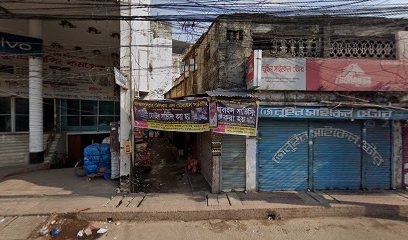
Ratul the best fashion house in khulna
1.1 km
Explore the vibrant world of fashion at Ratul, Khulna's premier fashion house, showcasing unique accessories blending modern style with tradition.
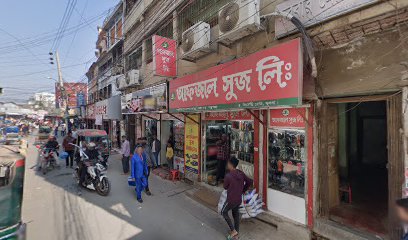
Khulna Shopping Complex
1.1 km
Discover the lively Khulna Shopping Complex, where shopping meets culture in the heart of Bangladesh's vibrant city.
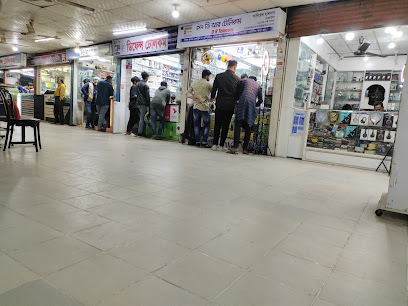
Rim Best Fashion House in Khulna
1.3 km
Explore the latest fashion trends at Rim Best Fashion House in Khulna, where style meets quality in a delightful shopping experience.
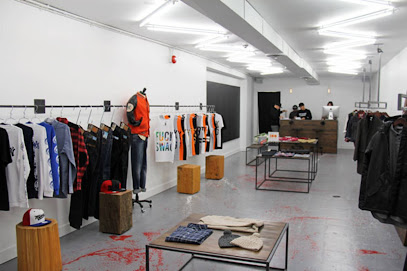
Top Ten Tailors
1.4 km
Discover bespoke tailoring and exceptional craftsmanship at Top Ten Tailors in the heart of Khulna, where your fashion dreams come to life.

Brand shop
1.4 km
Explore trendy clothing and unique styles at Brand Shop, located in the heart of Khulna's vibrant Abdul Jabbar Market.

Soinik Store
1.4 km
Experience the vibrant atmosphere and diverse shopping options at Soinik Store, Khulna's premier shopping destination.
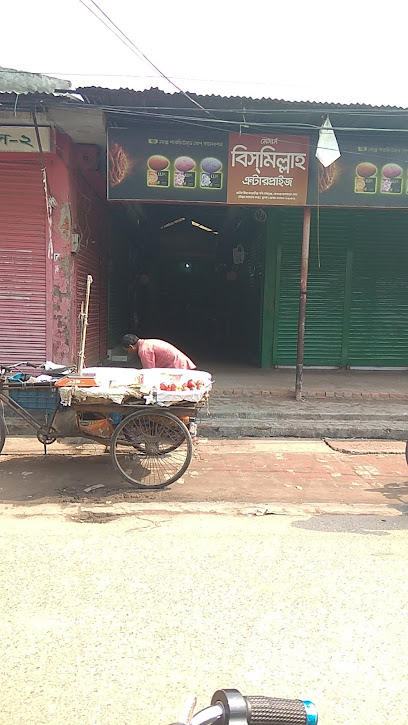
QuniQs Fashion & Digital Printing
1.6 km
Discover trendy youth fashion and custom print services at QuniQs Fashion & Digital Printing in Khulna, where creativity meets style.
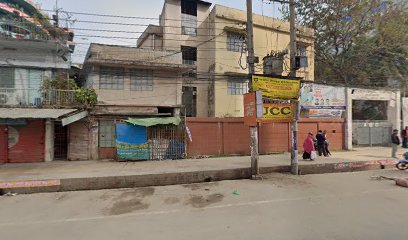
Daraz Khulna Hub (Drop Off Point & Collection Point)
1.8 km
Explore the Daraz Khulna Hub, a central drop-off point for the largest online shopping experience in Bangladesh, blending convenience with local culture.
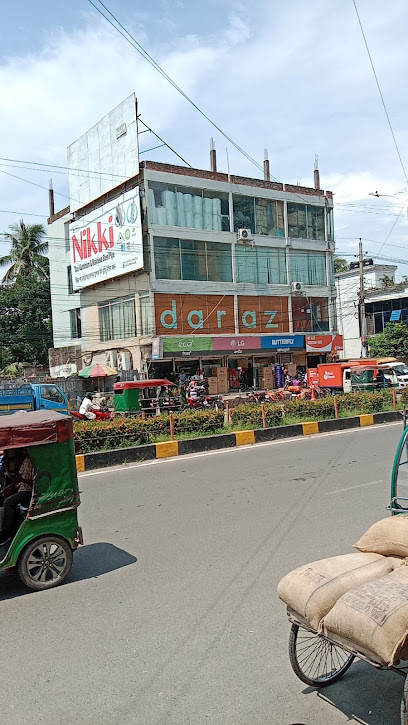
Mita Best Fashion House In Khulna
2.3 km
Discover the latest fashion trends at Mita Best Fashion House in Khulna, where style meets local culture and vibrant shopping.

Essential bars & hidden hideouts
District Bar Association, Khulna
0.6 km
Explore the District Bar Association of Khulna, a pivotal institution for the legal community and a gateway to understanding Bangladesh's legal framework.
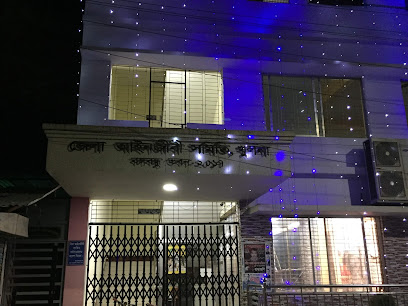
Hotel Castle Salam
0.9 km
Discover the perfect blend of comfort and convenience at Hotel Castle Salam, your ideal stay in Khulna's vibrant heart.
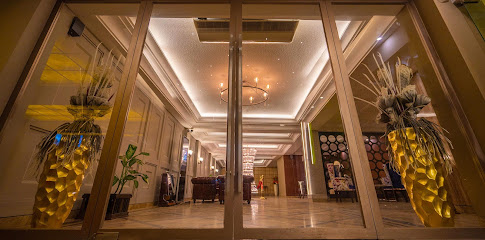
M.F. Hasib Sheaikh
1.1 km
Discover the vibrant nightlife at M.F. Hasib Sheaikh, a lively bar in Khulna offering a diverse drink selection and the perfect atmosphere for relaxation.
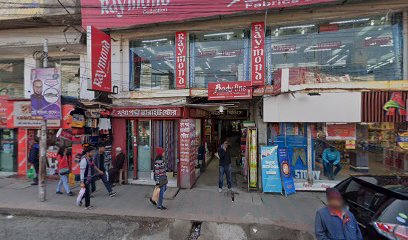
Gesco Kabab
1.6 km
Experience the authentic taste of Bangladesh at Gesco Kabab, Khulna's premier destination for delicious kebabs and local cuisine.
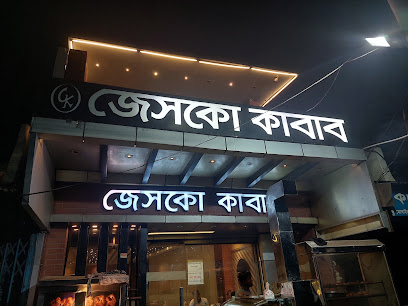
Juice Bar
1.8 km
Discover refreshing beverages and a lively atmosphere at Khulna's Juice Bar, your perfect oasis for relaxation and revitalization.

kathbirile
2.1 km
Experience the authentic taste of Bangladesh at Kathbirile, Khulna's top restaurant for traditional cuisine and warm hospitality.

Tiger Garden Int. Hotel
2.2 km
Discover the elegance of Tiger Garden International Hotel, a perfect blend of luxury, fine dining, and stunning event venues in Khulna.
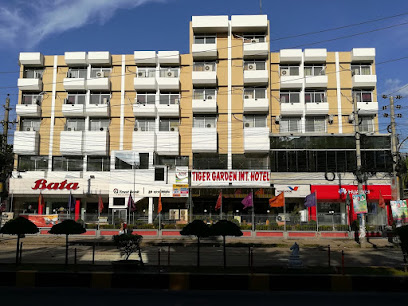
City Inn Limited
2.4 km
Discover the rich flavors of Khulna at City Inn Limited, a top-rated restaurant and hotel offering an unforgettable dining experience.
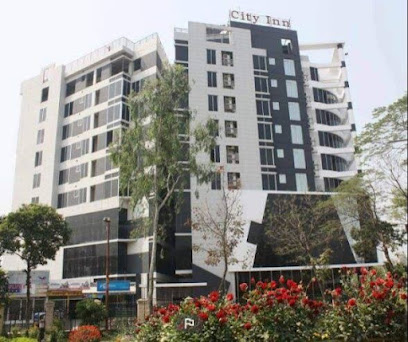
Dhaba @ Road Side
2.5 km
Savor the authentic taste of Bangladesh at Dhaba @ Road Side, where traditional biriyani meets modern hospitality in Khulna.
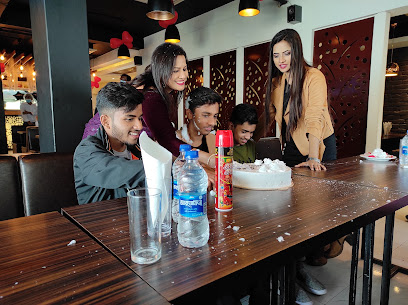
Coffee Glory, Khulna
2.7 km
Discover the rich flavors of coffee and delectable treats at Coffee Glory in Khulna, a must-visit café for travelers seeking a delightful break.
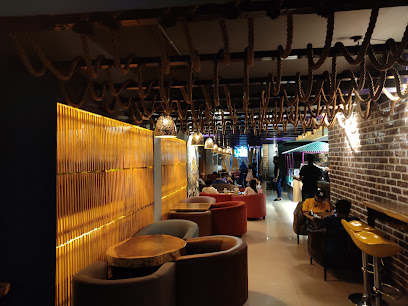
Khalar fresh fruit and juice
3.0 km
Experience the vibrant flavors of Khulna with fresh juices and fruits at Khalar Fresh Fruit and Juice, your perfect refreshment stop.
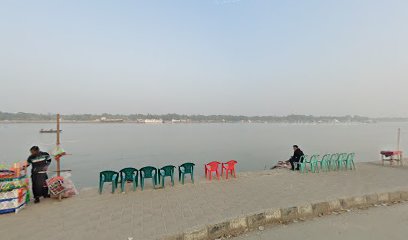
Wendy's food Court
3.2 km
Indulge in the flavors of Wendy's Food Court in Khulna, where delicious fast food meets a vibrant dining experience.
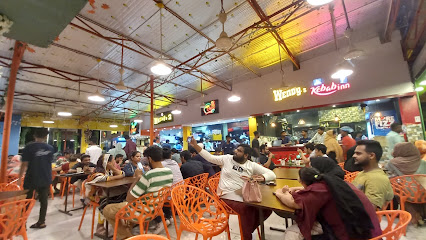
SPICY INN
3.3 km
Experience the vibrant flavors of Khulna at Spicy Inn, where authentic spices and warm hospitality create unforgettable dining moments.
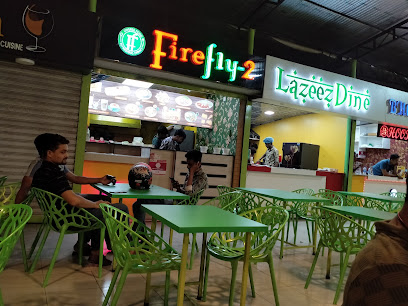
Sports 24 BD
3.4 km
Join the excitement at Sports 24 BD, Khulna's vibrant sports bar where fans unite for thrilling live games and delicious refreshments.
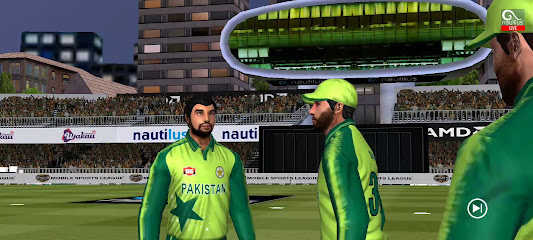
Md Ismail Hossain
3.6 km
Discover the authentic nightlife at Md Ismail Hossain Bar, where locals and tourists mingle in the heart of Khulna's vibrant social scene.
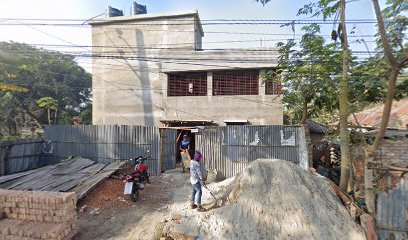
Nightclubs & after hour spots
Khulna Club Ltd
0.3 km
Discover the charm of Khulna Club Ltd, a social club offering delicious cuisine and a vibrant atmosphere in the heart of Khulna.
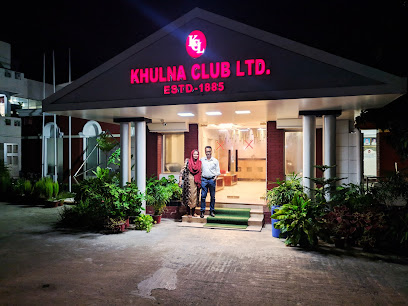
হিমেলের চিপা
0.7 km
Dive into Khulna's nightlife at হিমেলের চিপা, a vibrant night club offering exquisite drinks, lively music, and an unforgettable party atmosphere.
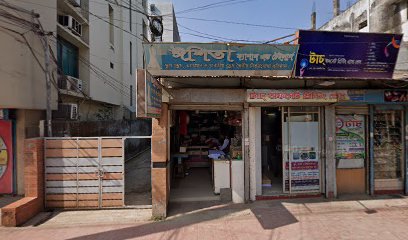
Bachelor Center
1.1 km
Discover Khulna's nightlife at Bachelor Center, where rhythm meets revelry in a vibrant atmosphere that promises unforgettable experiences.
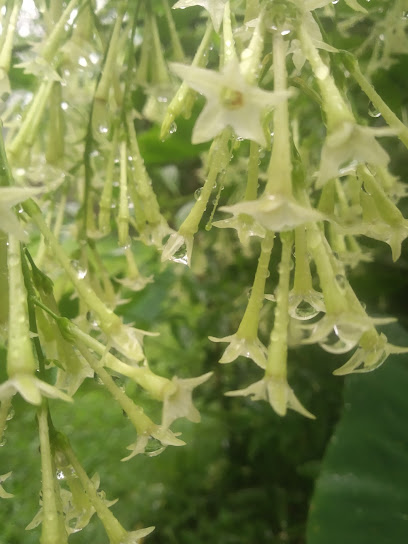
Mostak store
1.7 km
Experience the electrifying nightlife at Mostak Store in Rajapur, where music, dance, and vibrant energy create unforgettable moments.
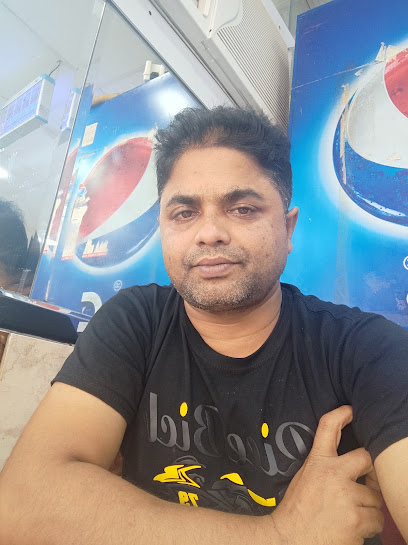
Rafiq
3.1 km
Discover the vibrant nightlife at Rafiq, Khulna's premier night club, where music, dance, and unforgettable experiences await every night.

Alamgir maitors
3.2 km
Unleash your night at Alamgir Maitors, Khulna's premier night club, where vibrant music and dance create unforgettable experiences.
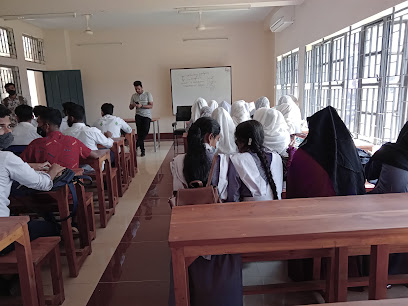
স্বাধীন এর বাসা
5.4 km
Discover the vibrant nightlife of Khulna at স্বাধীন এর বাসা, where music, dance, and fun come together for an unforgettable evening.

Project
6.6 km
Discover Khulna's vibrant nightlife at Project, the ultimate night club experience where music and dance come alive.
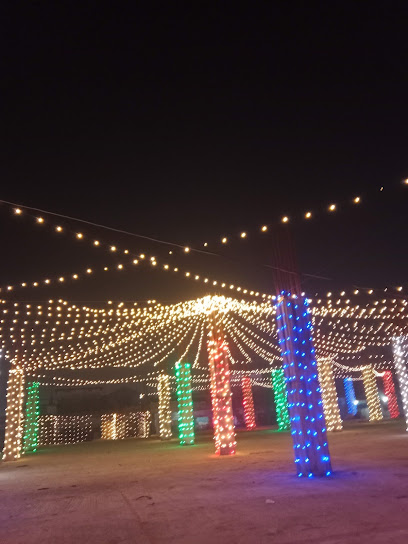
NRB Night Riders Bangladesh (Khulna)
7.8 km
Dive into Khulna's vibrant nightlife at NRB Night Riders Bangladesh, where music, drinks, and unforgettable memories await.
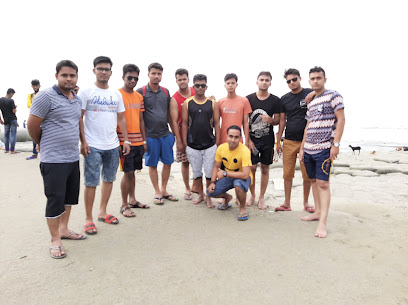
United Club
9.5 km
Discover the vibrant nightlife at United Club in Debnagar, where music, dance, and an electrifying atmosphere come together for an unforgettable experience.
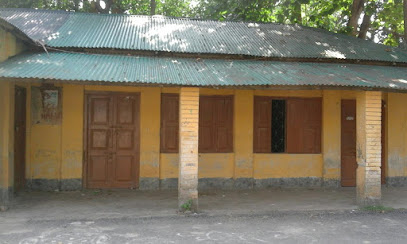
ORION
28.3 km
Discover the electrifying nightlife of Bishnapur at ORION, a premier night club offering vibrant music and a lively dance atmosphere.

Investors Club
36.9 km
Unwind and connect at the Investors Club in Mongla, a serene space perfect for networking and relaxation amidst vibrant local culture.
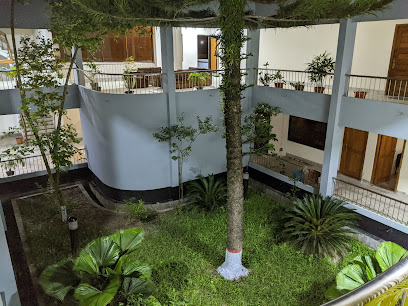
biri khawar jaiga
41.9 km
Discover the vibrant nightlife at Biri Khawar Jaiga, a premier night club in Patkelghata that promises an electrifying atmosphere and unforgettable experiences.
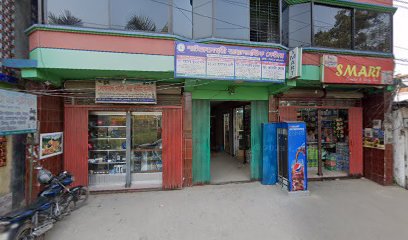
SHAMIM ISLAM KAZIPUR
49.3 km
Experience the electrifying nightlife of Jashore at Shamim Islam Kazipur, where music, dance, and vibrant energy come together for an unforgettable evening.

ভাই ভাই ইস্টোর
51.5 km
Experience the vibrant nightlife of Jashore at Vhai Vhai Eastor, a must-visit nightclub for music lovers and party-goers.




